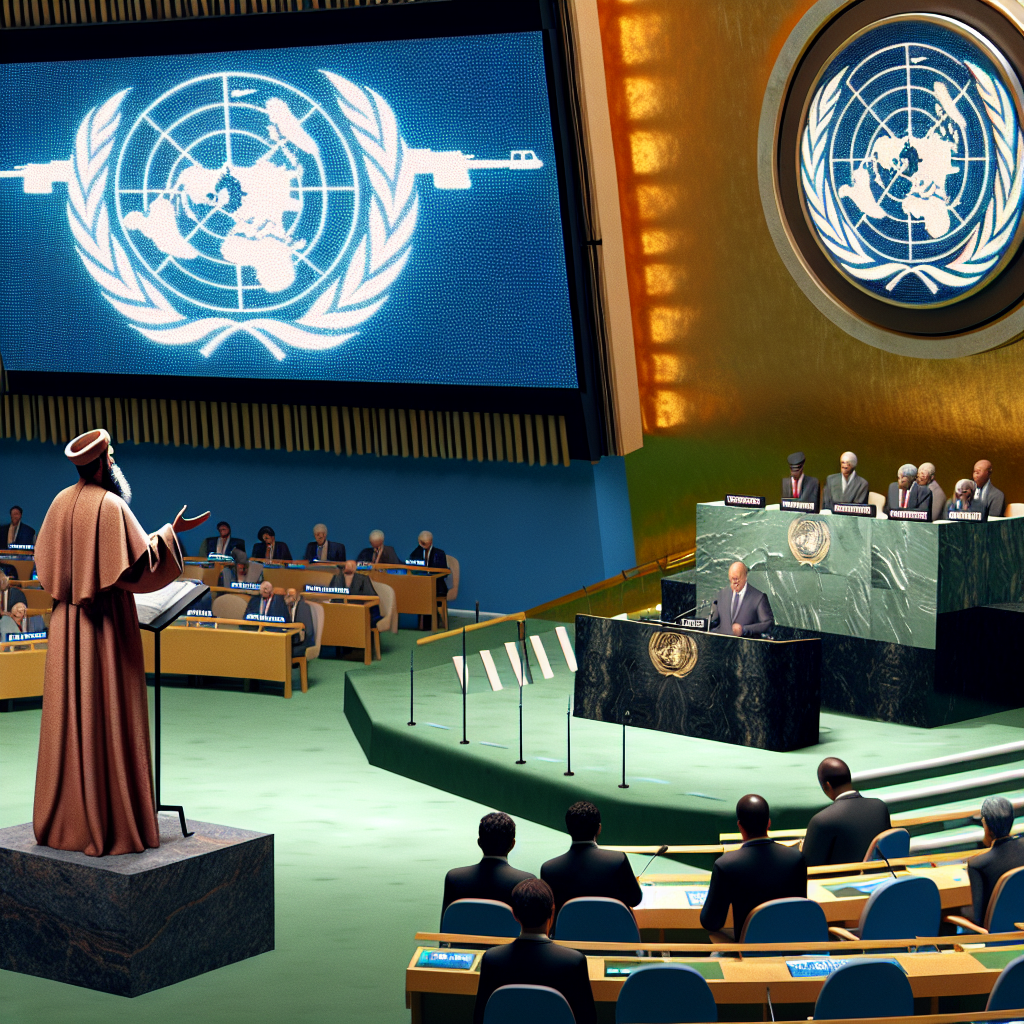Vatican’s Call for Ethical Oversight in AI Weaponry
Archbishop Paul Richard Gallagher, the Vatican’s Secretary for Relations with States, addressed the United Nations Security Council in New York this week with a powerful appeal: place a moratorium on lethal autonomous weapons systems (LAWS). His message underscores a key concern of the Holy See — the ethical dilemmas and humanitarian risks posed by artificial intelligence in modern warfare.
The Vatican’s Position on AI in Warfare
During his address, Archbishop Gallagher emphasized the urgency of regulating AI-driven weapons, which operate without direct human intervention. He called for international collaboration to ensure AI technologies are developed and deployed in ways that respect human dignity and protect innocent lives. He stated bluntly:
“Artificial intelligence must never replace human responsibility, especially when lives are at stake.”
Key Concerns Highlighted by the Holy See
The Vatican’s intervention pinpointed several specific concerns surrounding the use of AI in military applications:
- Lack of Human Oversight: Lethal autonomous weapons may act unpredictably, making accountability difficult in cases of unintended civilian casualties.
- Risk of Escalation: Automated weapon systems might escalate conflicts more rapidly than humans would respond, reducing the space for peaceful negotiation.
- Violation of Humanitarian Ethics: Delegating life-and-death decisions to machines challenges core principles of just war theory and morality.
A Call for a Moratorium and Legal Framework
Archbishop Gallagher urged world leaders to adopt a moratorium on the development and deployment of LAWS until an internationally accepted legal framework could be established. This echoes previous appeals from global civil society groups and aligns with the Vatican’s longstanding advocacy for disarmament and peace.
He stressed the necessity of a global regulatory framework that reinforces “human control, accountability, and transparency” in AI weapons systems.
The Ethical Imperative
Beyond the technical and legal challenges, the Holy See’s message carried a deeper spiritual and moral warning: allowing machines to make decisions about human lives risks eroding the moral responsibility essential to any peaceful society.
Gallagher reminded the Security Council that technology should serve humanity, not the other way around. The Vatican’s concern is rooted in Christian ethics, which assert that each human life is sacred and should never be reduced to lines of code evaluated through an algorithm.
An Invitation to Dialogue and Multilateral Action
The Archbishop concluded his address with an invitation for all nations and sectors — technological, governmental, religious, and civil — to engage in open dialogue. He pressed for urgent multilateral action to establish norms and guardrails around AI’s military use.
The Vatican backed this appeal by supporting a draft resolution within the UN that proposes starting negotiations toward a binding international treaty on lethal autonomous weapons.
Global Reactions and Growing Support
The Holy See’s position aligns with a growing international coalition that includes humanitarian NGOs, the International Committee of the Red Cross, and tech ethicists warning of the dangers of unregulated AI warfare. Prominent military experts have also raised alarms, noting the potential for AI errors and the difficulty of predicting machine behavior in complex conflict scenarios.
Conclusion: A Moral Compass in the Age of AI
With his impassioned plea at the UN Security Council, Archbishop Gallagher reaffirmed the Vatican’s role as a global moral voice, advocating for a world where technology does not override the intrinsic value of human life. As militaries continue to advance in artificial intelligence, the Vatican’s message serves as a crucial reminder: ethics must evolve alongside technology, or we risk losing our humanity.
The path forward requires not just innovation, but introspection — and laws that reflect both human intelligence and moral wisdom.



Leave a Reply